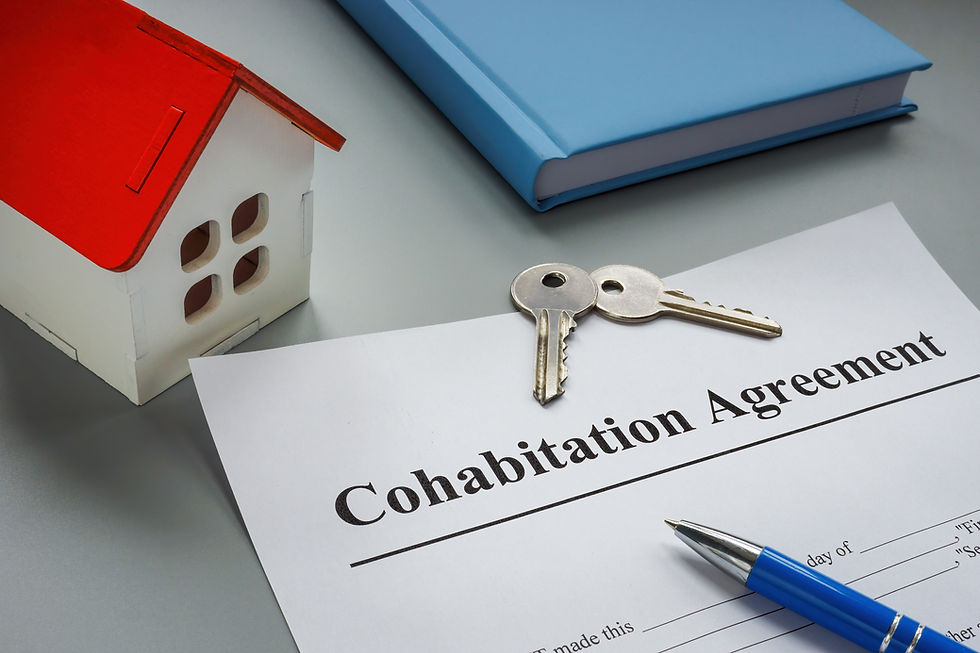What the law says about Divorce Settlements & Pension Funds
- Apr 14, 2022
- 4 min read
The term ‘pension fund’ is both a general name for all types of retirement funds that fall within the scope of the Pension Funds Act 24 of 1958, and a descriptor of a specific type of pension fund, one in which at least two-thirds of the retirement benefit must be taken as an annuity. Other types of pension funds are; provident funds, where the member may take the entire retirement benefit in cash, retirement annuity funds for retirement plans outside of the occupational/workplace environment, and preservation funds, to which benefits from a pension fund can be transferred.
The process dividing up pension and/or retirement funds in a divorce settlement should not be rushed. It is very importance that the retirement fund clause in a divorce Settlement Agreement is drafted by an attorney who specializes in Divorce Law like Rudolf Buys & Associates Attorneys. It frequently happens in divorce cases that pension fund administrators reject settlement agreements on the basis that the clauses dealing with the pension interest payout to a non-member spouse are drafted incorrectly. It is therefore of the utmost importance that the clauses dealing with pension pay-outs be drafted properly. If not drafted properly, application will have to be made to the court at great cost to amend or vary the settlement agreement.
The marital systems in South Africa and how they affect retirement fund claims
Marriages in community of property
The pension interests of the spouses will form part of the parties’ joint estate and the non-member spouse will be entitled to claim 50% of the pension interest of the member as at the date of the divorce.
Marriages out of community of property with accrual
Where couples are married out of community of property with the accrual, the spouse’s pension fund value will be taken into consideration to determine the value of his/her estate for purposes of the accrual calculation only.
Marriages out of community property without accrual before 1 Nov 1984
The spouses retain their own separate estates and there is no sharing of assets at divorce unless a court orders a redistribution of assets in terms of Section 7(3) of the Divorce Act. A pension interest forms part of the spouse’s estate and will then form part of the assets if redistribution is ordered by the court. The parties may also agree to share the pension interest in a settlement agreement.
Marriages out of community of property without accrual after 1 Nov 1984
Here the spouses retain their own separate estates and there is no sharing of assets at divorce. Any share in the pension interest will have to take place by mutual consent. The parties may also agree to share the pension interest in a settlement agreement.
The clean-break principle
The Pension Funds Amendment Act, 2007, introduced the clean-break principle for the treatment of retirement fund benefits upon the granting of a divorce decree. The Act allows retirement funds to deduct an amount or percentage upon divorce from a member’s benefit and pay it to the non-member spouse or to a retirement fund of his/her choice. The clean-break principle allows a non-member former spouse to access an agreed or court-ordered share of the member spouse’s retirement savings on divorce.
Any assigned amount may be paid from the member’s pension fund to a non-member spouse in terms of a divorce order granted under the Divorce Act, irrespective of the date of divorce, but may not be more than 100 per cent of the value of the member’s withdrawal benefit at the date of divorce. For the fund to make the deduction and payment to the non-member spouse, the fund must be ordered to endorse its records (make a note on the system) to such effect and/or to make payment to the non-member spouse. The non-member spouse can elect to receive a cash lump sum or to have the money transferred to an approved pension fund.
A fund is not allowed to deduct and pay over interest on the amount assigned to the non-member spouse (except where the fund does not pay the non-member spouse within the time frames stipulated in the Act).
The Government Employees Pension Fund (GEPF) was amended to introduce the clean-break principle with effect from 1 April 2012. In the past, the portion of a member’s pension benefit payable to a former spouse as part of a divorce settlement was only paid when the member spouse left the fund. With the new amendments, former spouses will now be able to receive their share of the pension interest soon after the divorce has been completed, either in cash or as a transfer to another pension fund. The new rules state that on the date of payment of a divorce benefit the GEPF will create a debt against the member that is equal to the amount payable to the non-member spouse. The debt amount will build up, with interest, up until the member exits the Fund (and it will be reduced to the extent that the debt is partially repaid over the member’s remaining period of service in the Fund). At the date of the member spouse’s exit from the fund the total value of the benefit will be determined and will then be decreased by the outstanding amount of debt owed.
.png)



Comments